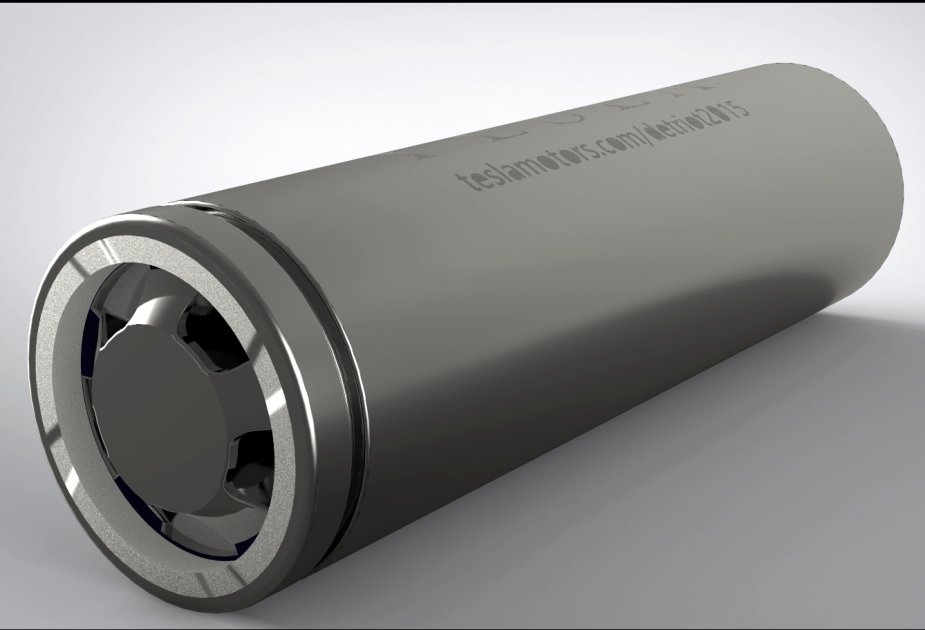Tesla battery researcher is “excited” the Army developing a new battery tech, Dave Gordon reports on Mail Herald from electrek.co source. A new Li-ion battery technology developed by the US Army has indeed piqued the interest of Jeff Dahn, Tesla’s main battery research partner.

Tesla Li-ion battery cell (Picture source: GrabCab Community)
In the latest issue of the journal Nature, the CCDC Army Research Laboratory (ARL), which is an element of the U.S. Army, released a study demonstrating a new battery technology based on new cathode chemistry, Jeff Dahn reports. They claim that the chemistry is “completely free of transition metal and delivering unprecedented high capacity by reversibly storing Li-ion at high potential (~4.2 V).” According to the findings, the new technology “opens a possibility to significantly increase the lithium-ion battery energy density while preserving safety due to the aqueous nature of the electrolyte.”
When combined with their previous development of “water-in-salt electrolytes (WiSE)”, they claim that they can achieve an impressive energy density of 460 Wh/Kg. Some soldiers have to carry between 15-25 pounds of batteries and this technology could significantly lower that weight while making the battery safer.
While it was developed with that goal, ARL also says that it could end up in “civilian applications for portable electronics, electric vehicles and large-scale grid storage.” Several battery researchers have commented on the new study, including Professor Jeff Dahn: “The paper by the University of Maryland and the Army team is the most creative new battery chemistry I have seen in at least ten years. (…) The team has demonstrated encouraging reversibility for 150 cycles and have shown that high energy densities should be attainable in 4-volt cells that contain no transition metals and non-aqueous solvents. (…)”.
Dahn is considered a pioneer in Li-ion battery cells. He has been working on the Li-ion batteries pretty much since they were invented. He is credited for helping increase the life cycle of the cells, which helped their commercialization. His work now focuses mainly on a potential increase in energy density and durability. In 2016, Dahn transitioned his research group from their 20-year research agreement with 3M to a new association with Tesla under the newly formed ‘NSERC/Tesla Canada Industrial Research’. He and his students have developed new chemistries that are already making their way into Tesla’s batteries.














